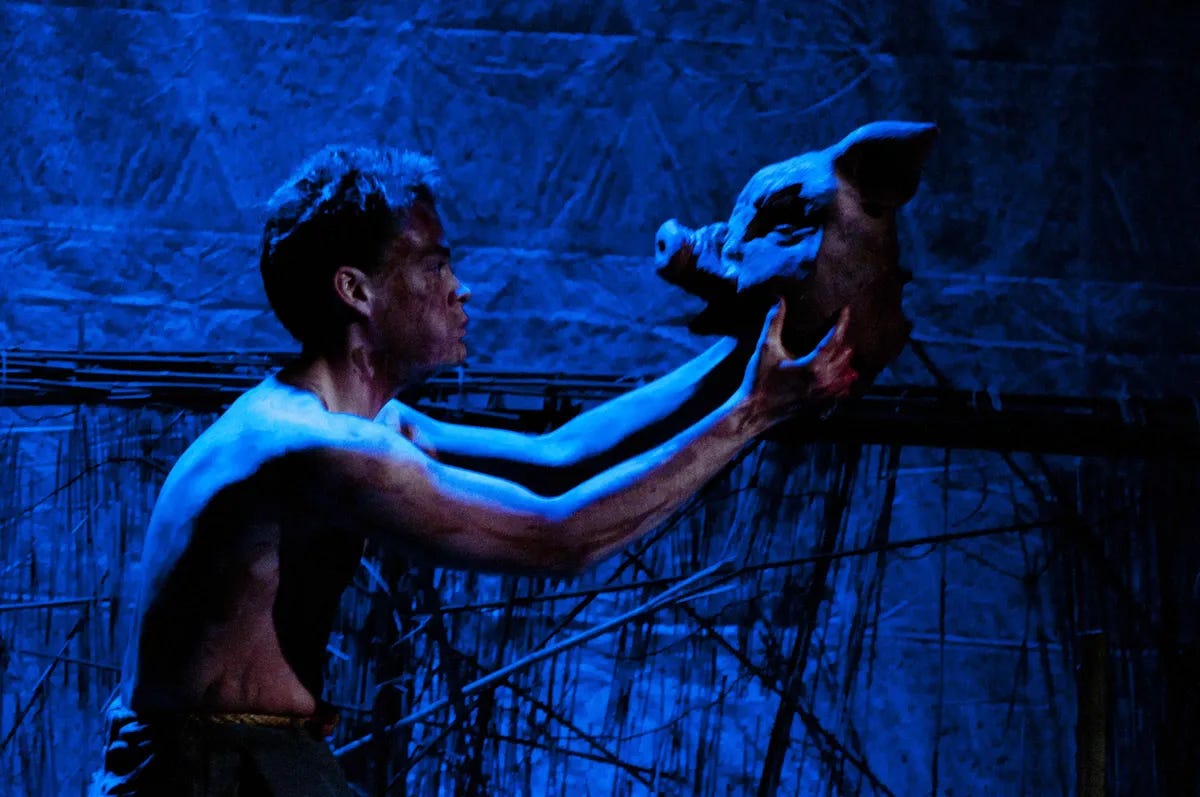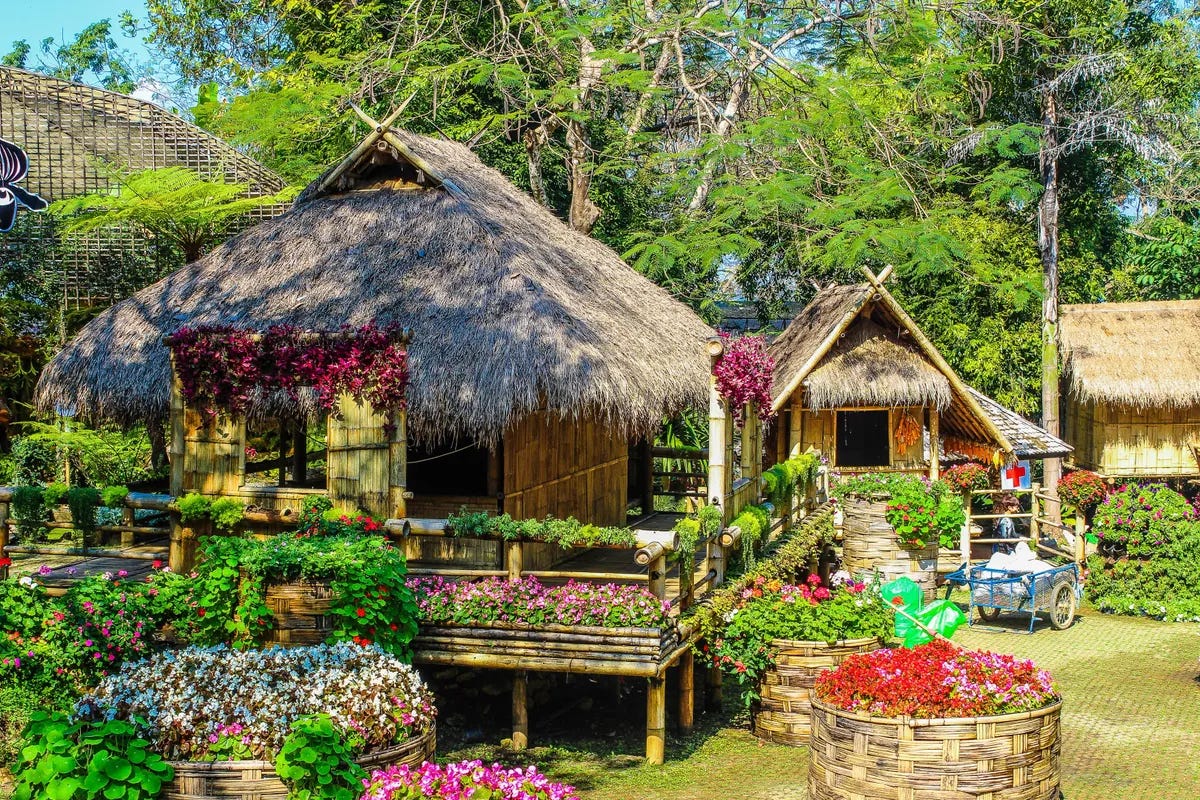"The mask was a thing on its own, behind which Jack hid, liberated from shame and self-consciousness." -William Golding, Lord of the Flies
I've been told we are in a spiritual war.
What are we fighting for?
In the William Golding tale, Lord of the Flies, we are presented with an ugly picture of humanity without authority to guide us all. The lesson: we are savages. Monsters.
What Do You See?
Increasingly, I look to the real world for understanding of humanity (or anything else), and am skeptical of every fictional signal, no matter how much I'm begged to believe it. Has the real world spoken about the Lord of the Flies?
It has.
And the news is good.
In 1965, fourteen years after Golding published his novel, a group of six boys got caught up at sea on an ill-advised voyage. Their boat wound up depositing them on a desert island where they lived in isolation for around 15 months. So, how did they fare?
Then, on the eighth day, they spied a miracle on the horizon. A small island, to be precise. Not a tropical paradise with waving palm trees and sandy beaches, but a hulking mass of rock, jutting up more than a thousand feet out of the ocean. These days, ‘Ata is considered uninhabitable. But “by the time we arrived,” Captain Warner wrote in his memoirs, “the boys had set up a small commune with food garden, hollowed-out tree trunks to store rainwater, a gymnasium with curious weights, a badminton court, chicken pens and a permanent fire, all from handiwork, an old knife blade and much determination.” While the boys in Lord of the Flies come to blows over the fire, those in this real-life version tended their flame so it never went out, for more than a year.
The kids agreed to work in teams of two, drawing up a strict roster for garden, kitchen and guard duty. Sometimes they quarrelled, but whenever that happened they solved it by imposing a time-out. Their days began and ended with song and prayer. Kolo fashioned a makeshift guitar from a piece of driftwood, half a coconut shell and six steel wires salvaged from their wrecked boat – an instrument Peter has kept all these years – and played it to help lift their spirits. And their spirits needed lifting. All summer long it hardly rained, driving the boys frantic with thirst. They tried constructing a raft in order to leave the island, but it fell apart in the crashing surf.
Worst of all, Stephen slipped one day, fell off a cliff and broke his leg. The other boys picked their way down after him and then helped him back up to the top. They set his leg using sticks and leaves. “Don’t worry,” Sione joked. “We’ll do your work, while you lie there like King Taufa‘ahau Tupou himself!”
They survived initially on fish, coconuts, tame birds (they drank the blood as well as eating the meat); seabird eggs were sucked dry. Later, when they got to the top of the island, they found an ancient volcanic crater, where people had lived a century before. There the boys discovered wild taro, bananas and chickens (which had been reproducing for the 100 years since the last Tongans had left).
Facing a hostile environment, all alone, the six boys did not tear one another to shreds. They worked together to save each other's lives, and thrived.
While the boys of ‘Ata have been consigned to obscurity, Golding’s book is still widely read. Media historians even credit him as being the unwitting originator of one of the most popular entertainment genres on television today: reality TV. “I read and reread Lord of the Flies ,” divulged the creator of hit series Survivor in an interview.It’s time we told a different kind of story. The real Lord of the Flies is a tale of friendship and loyalty; one that illustrates how much stronger we are if we can lean on each other. After my wife took Peter’s picture, he turned to a cabinet and rummaged around for a bit, then drew out a heavy stack of papers that he laid in my hands. His memoirs, he explained, written for his children and grandchildren. I looked down at the first page. “Life has taught me a great deal,” it began, “including the lesson that you should always look for what is good and positive in people.”
Constant politics and enmity are not the natural state of humankind. Golding had it wrong. Perhaps his life education was poor, and now his book is pushed on students in a poor educational system. If you've fallen into that trap, climb out now. There is time.
The Kunlangeta want you to feel dependent, and to believe that you need them to save you. They throw new trials at us almost daily, and bait us to hate one another. But if you love the people around you, and work with them, you and your community will not simply survive, but thrive.






thank you, I needed that.
What a timely, “word in season”. Thank you, Matthew, for discerning and articulating the true nature of the Spirit that is calling us forward, in this challenging, bewildering season, to renew our love, faith, determination, vision, hope, compassion … in what it means to be human, fully human: full of “Ubuntu“ as African communities refer: “I am, because you are” — without one another, we are diminished, together we are made more whole.
Surely, this is the challenge of our time: to learn, relearn, what it means to be human, amidst a culture that undermines humanity: encouraging people to avoid responsibility for themselves, giving it over to government and corporation’s, teaching us to fear trouble and suffering, rather than embracing them as a pathway to a more abundant life.